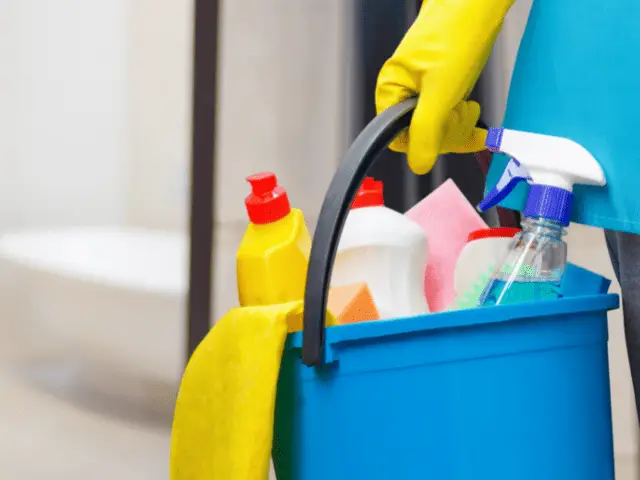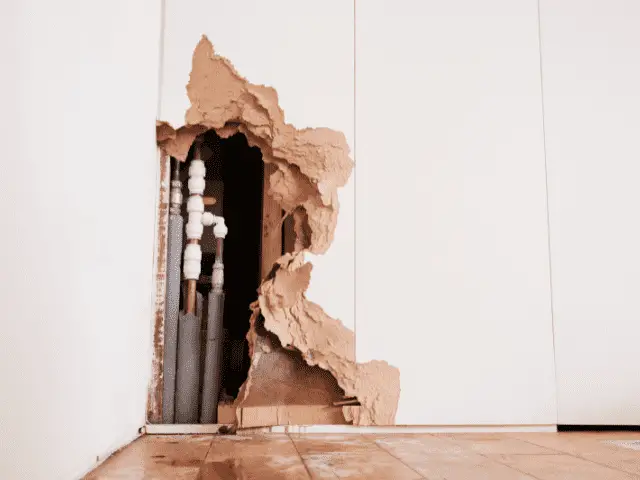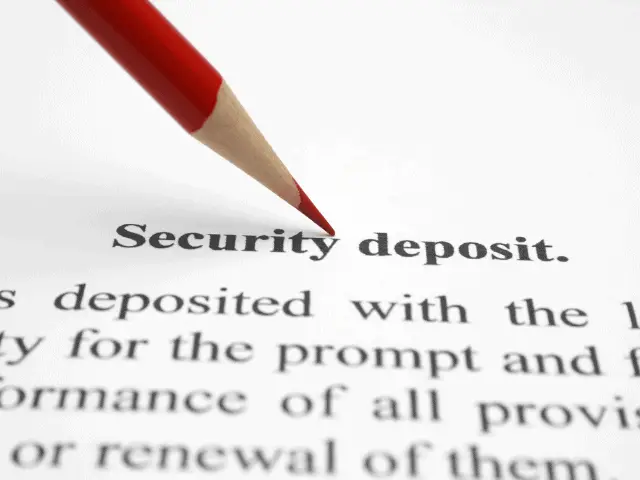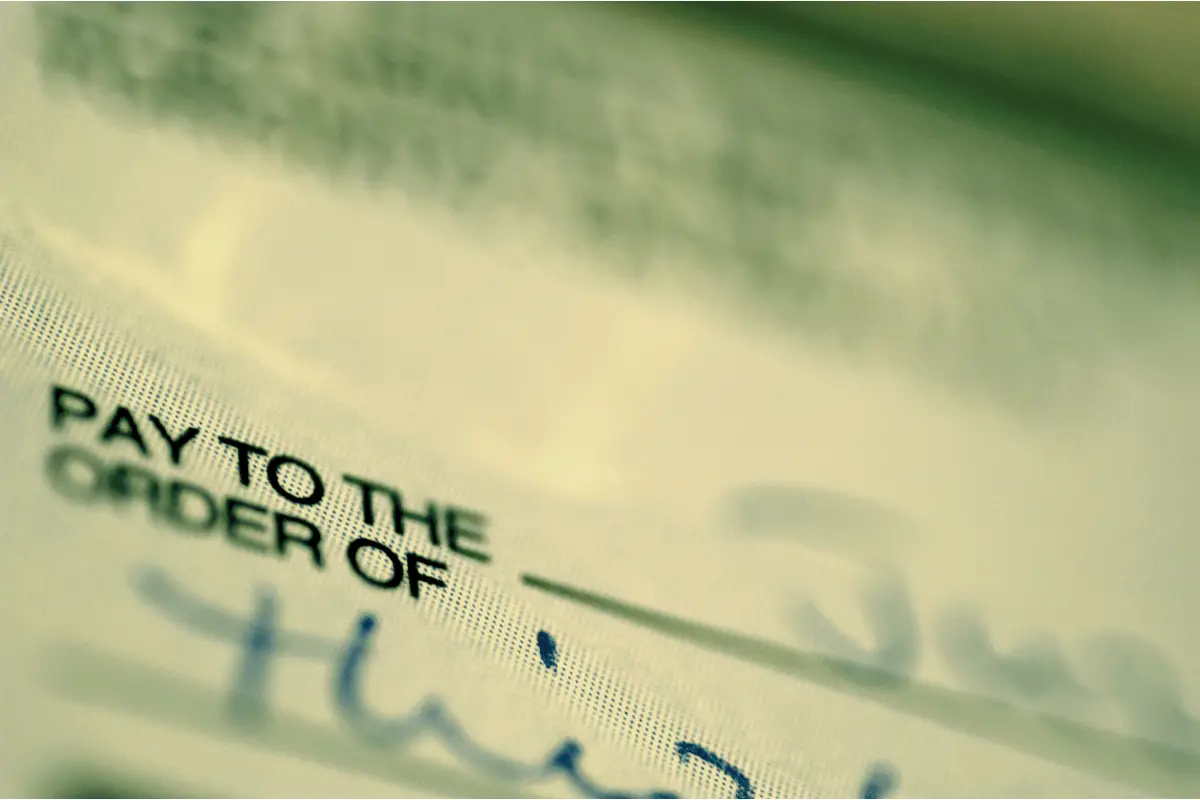You’re moving to a new place? Congratulations! Change is exciting but often comes with a hefty dose of stress. Along with a lengthy to do list, there is a lot of costs involved with moving and you want to save every dollar possible. Landlords can differ greatly in how they communicate with their tenants and what they need from you before you vacate.
You want to make sure to be as knowledgeable as possible about this process so that you can get your full security deposit back to make settling into your new place as easy as possible.
Table of Contents
Read Your Lease
The first thing you want to do is read your rental agreement.
Easy, right?
Then read it again and take notes on what you need to do to move out to get your security deposit back. Then have a friend read it and tell you what they think it says. Before giving proper notice to your landlord, re-read your lease for any conditions or caveats that you might have forgotten about since signing.
Make a list of the steps necessary for moving out without any of the legalese of the lease. Have your friend read the lease and tell you what they think it says.
Does the lease say “vacate by the first of the month” or does it say “ON the first of the month”? Do you need to submit a moving out inspection report before your lease is terminated, or do you just leave the keys on the counter and text your landlord when you’re done?
These are the small things that can get you wrapped up in a battle of semantics (or small claims court) with your old landlord while you’re trying to settle into your new home.
Get Ready to Clean, Clean, Clean

To get all of your security deposit back, be prepared to clean… a lot.
The vast majority of leases stipulate that you need to clean thoroughly before leaving. Some landlords will provide a cleaning list. If yours doesn’t, request one or make a list of what you cleaned for them and have it documented via email or online tenant portal.
Speaking of documentation, taking pictures of everything before you move out can come in very handy when trying to get your security deposit back.
Often the cleaning list will be VERY thorough: baseboards, inside of the fridge, wiping down walls. Make sure you understand what everything on the list means and make sure to ask your landlord for clarification if you’re unsure about something.
The #1 thing to keep in mind when you’re cleaning: don’t try to do it all on the day you move out! You will be tired from moving, mentally scattered from all of your belongings being packed in boxes, and possibly have children or pets underfoot.
If at all possible, pack room by room and clean as you go. When we start packing the house we will start with whatever room is furthest from the front door or garage. (Wherever is going to be the place where everything will be exiting your house to the truck) We will clear that room out, packing up boxes and moving everything as close to the front door as possible.
The goal is to have the last boxes go in the car, do a quick vacuum/sweep of the area around where the boxes were, and get in your car and move on to your next chapter.
If friends offer to help you move, make sure they stick around for cleaning too! Assign one person to follow behind the boxes and furniture that get moved out and clean as you go. You’d be amazed by how much dust piles up behind furniture and on boxes and it will all appear as you move.
And finally, as you’re packing, make sure to not pack the cleaning supplies away! Keep them in an easy to reach place and plan for how they’ll get packed in the car or moving truck when you’re done–including trash bags for dirty paper towels, mops and brooms, etc. Leave extra space for a bucket or box to throw those things in when you’re done.
You don’t want to be trying to cram a vacuum into the passenger seat of your already-stuffed vehicle at the end of the day–or not be able to find it when you get to your new place. This preparation means you’ll have that much more brain space to devote to doing a thorough job cleaning so you can get that security deposit returned in full.
Do a Walk-Through

Most damage won’t be this obvious. Have a friend walk through and point out all the things you’ve started to ignore.
Have a friend do a mock walkthrough. We humans can adjust to almost anything. This is sometimes a helpful quality but when it comes to getting your security deposit back, it’s better for things to stick out (to you at least).
If you need to do any repairs before you move out such as filling in nail holes, removing carpet stains, or replacing light bulbs, don’t trust yourself to know what damage you caused and what was there before you got there. Have a friend come over and ask them to point out any scuffs, dents, or damage they see and make a list.
You are used to seeing that same little scuff on your bathtub every day, but they’re not and those little things could be the difference between getting your full deposit returned or missing out on your own hard-earned cash. Normal wear is usually allocated for in a lease or rental agreement, but if you’re able to fix something – fix it.
Better yet, and I can’t recommend this enough, when you move into a new place – take pictures of everything!
I will take literally hundreds of pictures when we move into a new rental. Every scuff, stain, nail hole patch – every little thing that’s not perfect. Then if there is ever an issue when we move out, we have documentation and can’t get blamed for something that was already wrong.
Final Inspection With Your Landlord
Always schedule a final move-out inspection with your landlord. That way, they can point out to you anything that may prevent you from getting your security deposit back.
You’ll then have time to be able to fix any issues and document (take pictures) that it was fixed.
Also, do not mention any damage to your landlord! You may be inclined to mention a stain you couldn’t get out from that ill-fated attempt to paint your bed frame or a bit of paint chipping from where the cat’s litter box sat against the wall. You might be inclined to apologize for it just in case they won’t charge you if you have an explanation–don’t.
Often landlords won’t notice those small things or they won’t want the hassle of a possible dispute with you over the deposit. Especially if you’re renting from a larger company with a high turnover for rentals, they might not be looking as closely as they’ll be working to get another tenant in as soon as possible.
Having said that, sometimes the large companies are the worst about not wanting to give you your security deposit back. Never assume anything.
Know How You’ll Receive Your Security Deposit

When in doubt, check the rental agreement.
If you use an online tenant portal with direct deposit, it’s possible your security deposit will come right to your account. If you pay via check, most landlords require a stamped envelope with your forwarding address to be given to them before you move out.
Check your lease for this information, and ask if it’s not clear. Include your next address in an email or text to your landlord to avoid any “I didn’t have your forwarding address” debate.
Co-ordinate With Roommates
If you are moving out and other roommates are staying, review your move out plan with them well in advance and remind them of it as the date of your move approaches. Make sure you’re all on the same page about the timeline of you leaving, what items you’re taking with you versus what is staying, what you need to clean and when the new tenant is moving in (if applicable).
Make sure to give the landlord proper notice as soon as you’ve moved out and/or ask to do a walkthrough with them to confirm any reason they might be keeping a part of your security deposit. You don’t want to get blamed for your roommates’ mistakes or for misunderstanding what needs to be taken care of.
If you are moving with a partner or friend to a new place, divide up the tasks. Are you a terrible packer but love to clean? Is your partner a pro at business phone calls and you’re a planner extraordinaire? Make sure you and your partner or friend know who’s communicating with the rental company, who is doing what cleaning, and who is packing what.
This will help avoid the dreaded, “I thought you were handling that?!” at a critical moment and ensure that nothing gets forgotten that might jeopardize the return of your security deposit.
Make a Good Last Impression
Plan your last few days out so you know when you need to hand in any paperwork, drop off keys, etc. so you’re not frantically calling or texting your landlord outside your empty old apartment.
Especially if you’ve had very few interactions with your landlord since moving in, a nice handwritten note attached to your keys when they are handed off thanking your landlord for working with you gives your landlord something nice to say about you if a future landlord calls them for a reference.
It won’t always work, but that nice note might be the difference between your landlord being a stickler about some small damage or missed cleaning and just letting it go.
The bottom line: understanding your responsibilities so you can make a plan and communicate clearly with your landlord is going to make moving less of a chaotic hassle and more of an exciting transition.
Good luck with your move and good luck with getting that security deposit back!


